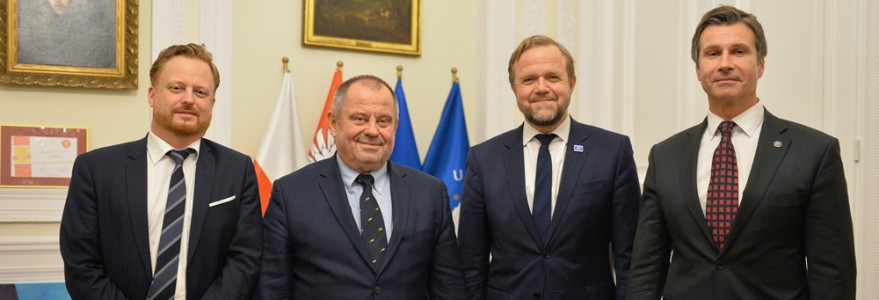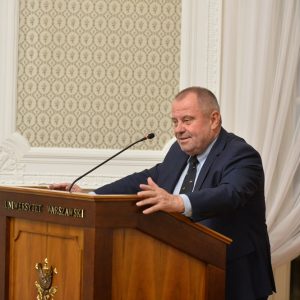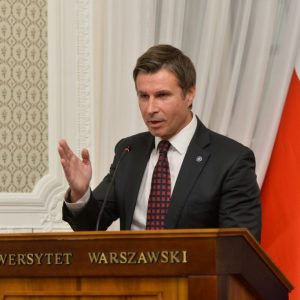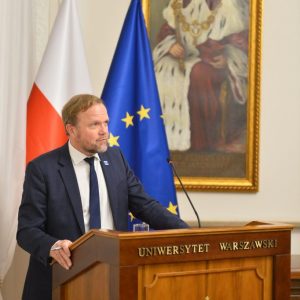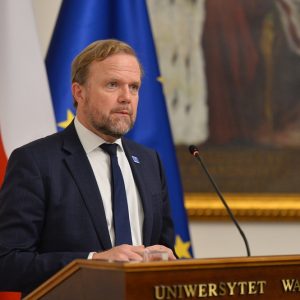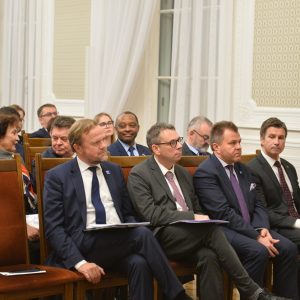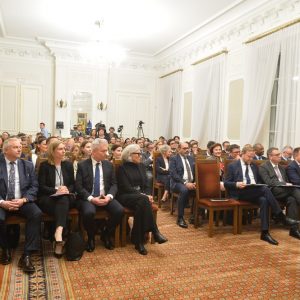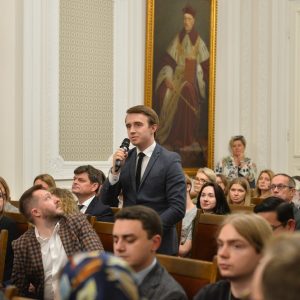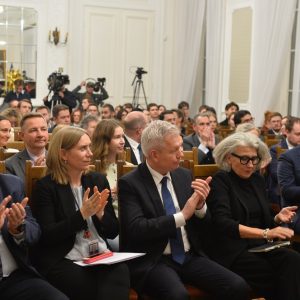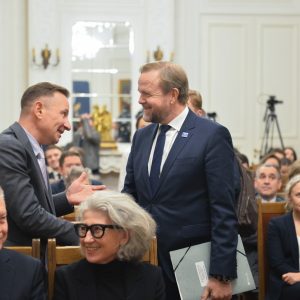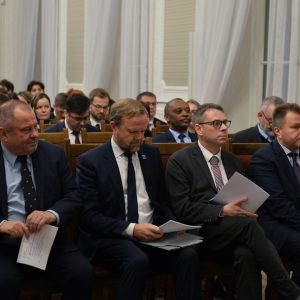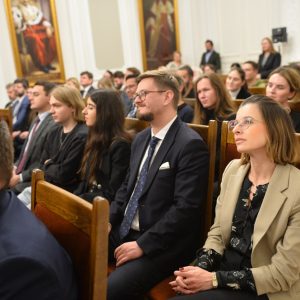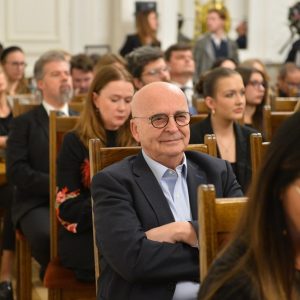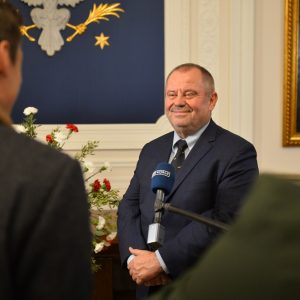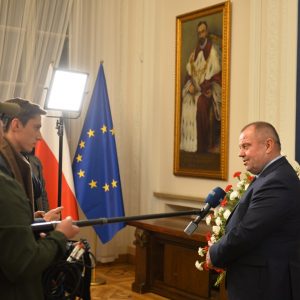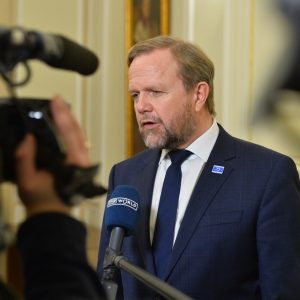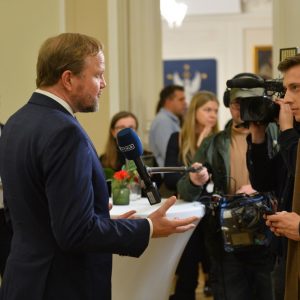“Democracy is not a perfect system, but it is by far the best model that we have to preserve, protect, and promote fundamental human rights. Over the last decades or so, we have far too often taken our rights for granted. Certainly, many young people do that, but the reality is that today we must really stand up and fight for our values and fundamental human rights,” Bjørn Berge, Deputy Secretary General of the Council of Europe, said in his keynote speech during the Warsaw Dialogue for Democracy conference at the UW.
Warsaw Dialogue for Democracy is a cyclical conference that provides a platform for the exchange of ideas and experiences in the field of democracy and civil society, as well as respect for human rights. This year it was jointly organised by the University of Warsaw and the Ministry of Foreign Affairs.
The impact of new technologies on democracy and human rights was the main theme of the conference.
“The University of Warsaw is a special place. It is an open, democratic institution where different viewpoints, religions, cultures and perspectives are respected. It respects all and each individually,” said Prof. Alojzy Z. Nowak, Rector of the University of Warsaw. “Our event today is a special moment when we can discuss the impact of new technologies and artificial intelligence on our functioning. The University of Warsaw has many achievements in the field of AI, both in the theoretical and practical fields, he added.
“Today presents a unique opportunity to confront some of the most pressing challenges of our time – issues that sit at the intersection of technology, human rights, democracy, and security. The University of Warsaw is proud to serve as a platform for these crucial discussions, fostering a dialogue that not only advances academic thought but also informs policy and drives social action,” pointed out Robert Grey, the University of Warsaw Chancellor.
The event is attended by academics, experts, diplomats and representatives of civil society. Undersecretary of State Jakub Wisniewski recalled the Council of Europe’s swift response to Russia’s aggression against Ukraine, which excluded Russia from the organisation. At the same time, he listed the challenges that societies in the modern world face, including disinformation, surveillance and fake news. The Deputy Minister indicated that this poses a serious threat to the integrity of a democratic process.
“There is a flow of biased, misleading, sometimes outright false information, which poses a serious threat to the integrity of a democratic process, including elections itself. But we do not give up. We know what to do. Education and digital literacy, critical thinking skills, policies that protect privacy, and rules holding big corporations accountable for their actions. And Poland is not alone. We have the Council of Europe. We together defend democracy, human rights, and freedom in the digital age. We fight against cybercrime, added Jakub Wisniewski.
The keynote speech was delivered by Bjørn Berge, the Deputy Secretary General of the Council of Europe.
“Democracy is not a perfect system, but it is by far the best model that we have to preserve, protect, and promote fundamental human rights. Over the last decades or so, we have far too often taken our rights for granted. Certainly, many young people do that, but the reality is that today we must really stand up and fight for our values and fundamental human rights,” stressed the Deputy Secretary General of the Council of Europe.
In his address, Bjørn Berge enumerated the issues of cybercrime, data protection or the right to privacy, referring, among others, to the Budapest Convention. He also mentioned other initiatives that are being undertaken by the international organisation in these areas.
“Data protection and the right to privacy are also relevant to the challenge that the global community faces today, the rise of artificial intelligence. Even now, it is hard to know its future impact and how far it will influence our lives and societies in the years and decades to come. But that impact will no doubt be immense and bring astonishing changes,” said Bjørn Berge, adding: “We all hope for a future in which AI can continue to help us improve the detection, the diagnosis, and treatment of serious illnesses, help us speed up and simplify bureaucratic processes. Improve our public services and replace tedious and dangerous jobs. But for all these potential benefits and many more, there are equally a number of serious risks and challenges associated with it.”
The Council of Europe’s Deputy Secretary also highlighted the Council of Europe’s adoption this year of the first-ever international legally binding treaty to ensure respect for human rights, the rule of law and legal standards for the use of artificial intelligence.
The conference began on 18th November at 5 pm in the Senate Hall of the Kazimierzowski Palace (Krakowskie Przedmieście Street 26/28). The panel sessions were held on 19th November from 10:00 to 16:15 in the 0.410 room in the UW building on Dobra Street 55.



